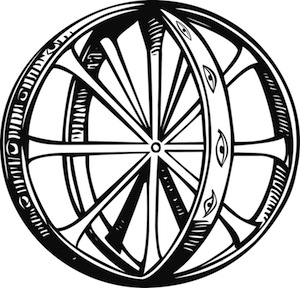 If you’ve been following along more or less agreeably, you’ve assented to a number of very powerful points. You are on board with my characterisation of words as an extraordinary but highly atypical (hence, at risk of misleading) mode for expression and apprehension. You have allowed me the notion that any verbal mode of expression involves a great deal more than words alone, and it’s not that rare an event when words are among the less important elements of the semiotic economy. Of course, most importantly, you’re allowing me to proceed on the premise that meaning is not a quality inherent in any expressive gesture, but is a way of talking about the process of offering and uptake.
If you’ve been following along more or less agreeably, you’ve assented to a number of very powerful points. You are on board with my characterisation of words as an extraordinary but highly atypical (hence, at risk of misleading) mode for expression and apprehension. You have allowed me the notion that any verbal mode of expression involves a great deal more than words alone, and it’s not that rare an event when words are among the less important elements of the semiotic economy. Of course, most importantly, you’re allowing me to proceed on the premise that meaning is not a quality inherent in any expressive gesture, but is a way of talking about the process of offering and uptake.
Now I’ll suggest something more contrary even than what I’ve been saying before: namely, that the distinction between “literal” and any alternative (“symbolic” or “figurative”. Or “spiritual”, for starters) confuses more than it clarifies, and should be abandoned. The principal uses of “literal” in polemical discourse all construct false differences, and many of the uses of “literal” in constructive discourse mystify the interaction they’re being used to advance. Although there are certainly innocuous ways to talk about the “literal” and its alternatives, the innocuous uses begin when the theoretician can say at the outset that this is just a heuristic distinction with no effectual purchase on words or reality. Where dominant discourses of meaning propose a distinction between “literal meaning” and “metaphorical meaning“, we should think instead in terms of more and less familiar (“conventional”, “probable”, “ordinary”) usage. Un-reifying the “literal” and “symbolic” clarifies quite a bit in our interpretive discourse, but that would take me beyond my two-paragraph-per-day limit.